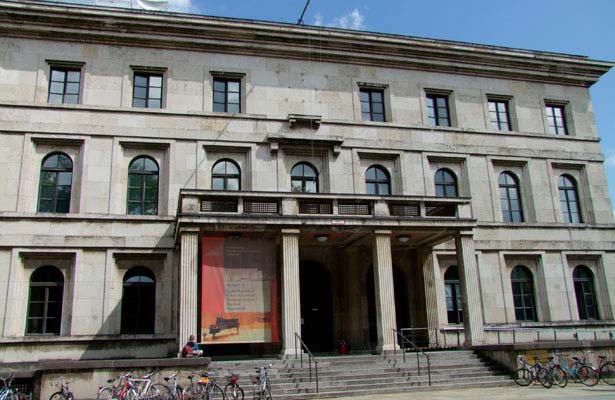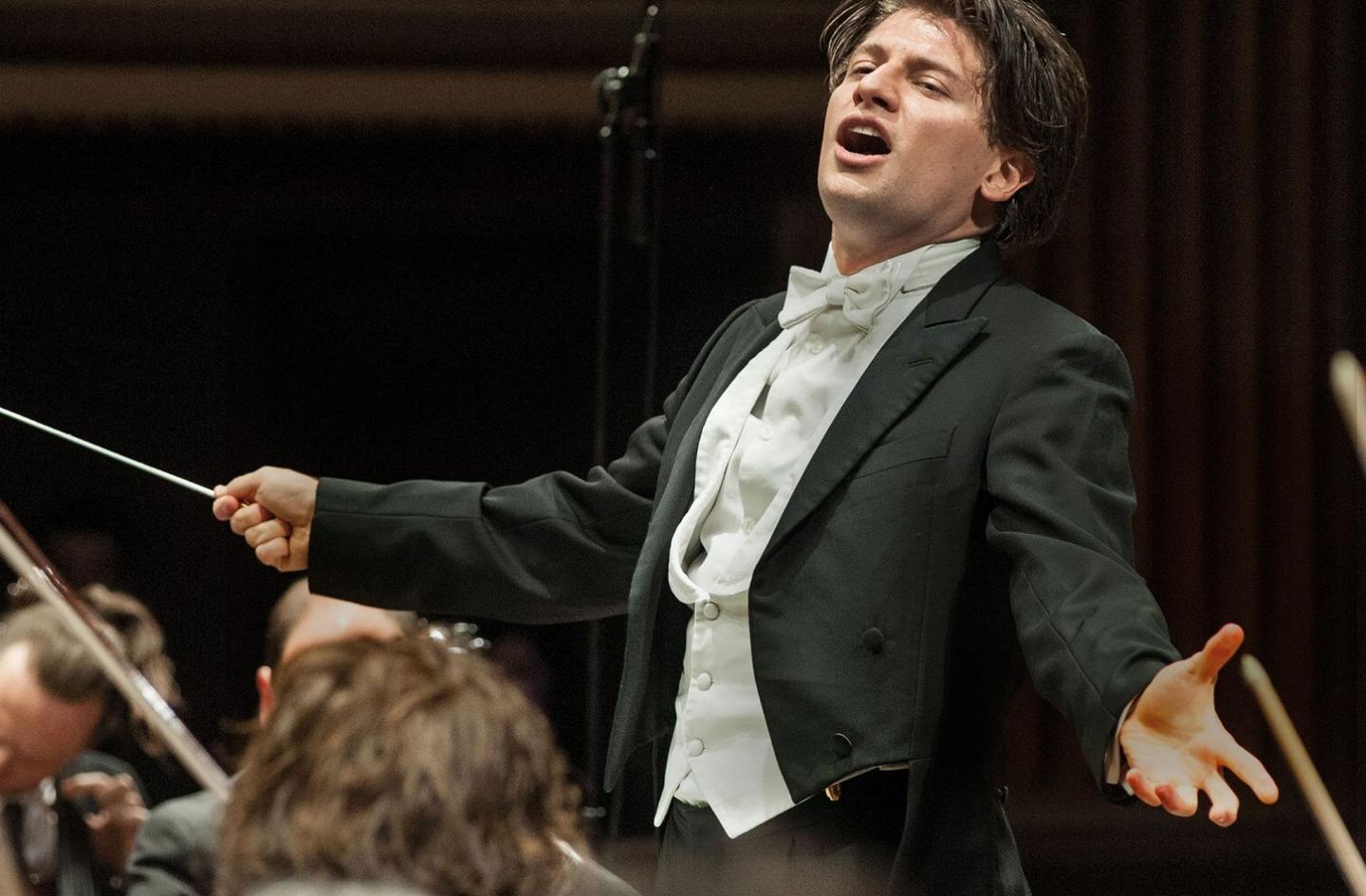Munich suspect’s wife is convicted
mainThe wife of a former Munich Academy professor who was recently found guilty of sexual offences has herself been convicted of defaming one of his accusers. Complicated report here.


The wife of a former Munich Academy professor who was recently found guilty of sexual offences has herself been convicted of defaming one of his accusers. Complicated report here.

The US violinist has announced she is still…

We gather that Juilliard has summarily fired a…

Amsterdam’s Royal Concertgebouw Orchestra has recruited its next…

The Metropolitan Opera has appointed Daniele Rustioni as…

Session expired
Please log in again. The login page will open in a new tab. After logging in you can close it and return to this page.
The article is difficult to follow, but if I understand it, the wife of a professor accused of sexual assault (of what sort I’m not sure) wrote in an email to the editor of a magazine that his accuser had been persuaded to file charges — i.e. put up to it by others. For this she was convicted of defamation with a monetary punishment put on probation (i.e. she doesn’t have to pay the fine if she doesn’t spread anymore false information.)
The above photo is also interesting. The University of Music in Munich is housed in what was built and used as Hitler’s personal office building. It’s perhaps the fullest realization of Nazi architecture still in existense. The balcony shown in the photo is famous because of a photo of Hitler and Chamberlain standing on it after they agreed to the partitioning of Czechoslovakia. I often heard that people were tortured in the basement where the student cafeteria is today. Not sure if that’s true. The building gave me such creepy feelings I could barely stand to go there, but most people in Munich aren’t bothered much by it. A couple other buildings that were part of a complex in the area were dynamited by the US Army so that they would not become Nazi shrines.
The misogyny my wife and I experienced in Munich caused us much suffering and rightly or wrongly the atmosphere of buildings like this made it even worse.
I was going to say that the article isn’t that complicated or difficult to follow but it appears I am wrong.
The “professor accused of sexual assault (of what sort I’m not sure)” is Siegfried Mauser, the former head of the Musikhochschule München (as is clearly mentioned in the linked article) and as for what he has been accused of – and by a court of first instance sentenced* for – doing is covered quite decently here on SD.
*Mauser’s sentence was a suspended prison term of 9 months. Both, Mauser and the District Attorney appealed the sentence.
Mauser appealed because he wanted to have all charges against him dismissed and the District Attorney appealed because he found it too lenient and wanted Mauser to serve actual time in jail.
The appeals are being reviewed and the higher court will announce how it will proceed within the next 2-3 months.
With people now throwing around lawsuits for defamation regarding this matter, I prefer to use more cautionary language. One aspect of the article strikes me. Mauser’s wife was convicted of defamation because she said others had persuaded the alleged sexual assault victim to file charges. The word used in the judgement was “angestiftet.” It can mean anything ranging from persuaded to incited. The article doesn’t provide anymore detaials so its diffcult to understand what was actually said and done — i.e. it is difficult to follow.
I find the ruling a bit troubling because it might be seen as implying that there is something wrong with encouraging the victims of sexual assault to file charges. Or that if they need encouragement, something is wrong with their claims. Or that it might imply that those who encourage a victim to file charges have ulterior motives. I doubt the judge intended any of this, but unscrupulous lawyers (of which there are many) might try to exploit the ruling in that manner.
People should also know that the events in Munich are not isolated. Sexual abuse and exploitation has been a wide-spread problem in German conservatories for decades while almost everyone turned a blind eye. This was part of a larger spectrum of misogyny that extended very deeply from the conservatories into orchestras and opera houses.
If that is “Nazi architecture” it’s rather un-notable and generic appearance is probably why it remains acceptable for use today. Like the autobahn.
I think that structure actually predates Hitler.
Turns out, it does come from the Hitler era, built between ’33 and ’37.
Indeed it is. There are two almost identical buildings, now separated
by the new documentation centre (built on the site of the Braunehaus, whose foundations had been left intact).
A couple of years ago I went to a number of student recitals there and it was very impressive. Maybe the building doesn’t stand out externally but the profusion of red marble inside is typical. It is surprisingly intact, maybe due to its use by the American forces immediately after the war. It’s ‘twin’ is some sort of architectural store I believe.
The students seem to live with its history without much problem.
In response to William I was very impressed by the city, perhaps less so by its inhabitants, a little pompous for my tastes.
The wiki article about the Fuhrerbau is interesting, especially in regard to the city’s attitude towards ‘stolpersteins’ (those brass plaques placed near to the dwellings of Jewish folk deported, murdered or otherwise list). Nearly all of the major German cities have many of these memorials – but you’d need to look long and hard to find them in Munich….
https://en.m.wikipedia.org/wiki/Führerbau
Munich has another important example of Nazi architecture, the Haus der Kunst, that is equally well-known. The Musikhochschule was originally called the Fuhrerbau (The Fuhrer’s Building.) It has a sister building across the street which if I remember right was the headquarters of the SD, or at least some other important Nazi agency. Neo-classcial architecture in Munich has an odd ball history I don’t have time to relate. By some circumstance, the Bavarian Monarchy saw themselves as the Kings of Greece. I think Hitler, who saw Munich as his “spiritual home,” picked up on this idea.
Munich, which was the birth city of the Third Reich, was behind almost all other West German cities in coming to terms with its Nazi past.
William Osbourne:
You do know that most Nazi voters were from rural and small town Protestant communities don’t you? Even in the 1930s, being a large Catholic city, few people in Munich itself (or the surrounding coountryside) would have voted for the Nazi Party.
Of course there were enthusiastic supporters of the Nazi’s in Munich (the Munich Phil billed itself as the “Nazi orchestra”) but such supporters were a minority within the city. You should not mistake the social conservatism of Bavaria as anything to do with the Nazis.